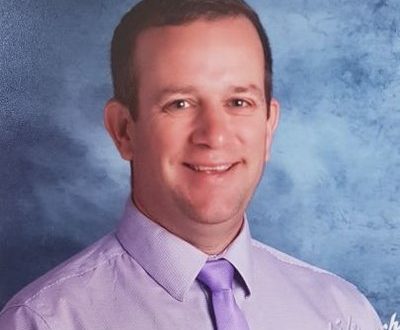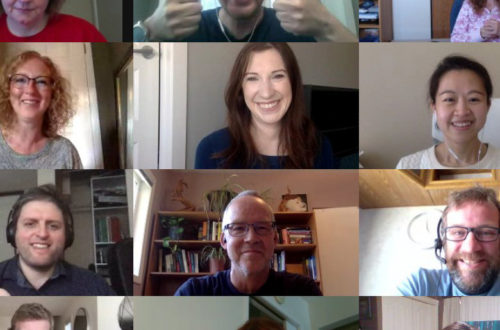From the Editor
Mathematics is more than learning the basic facts. For many parents and, unfortunately, some teachers, mathematics is the memorization of basic facts and some formulas. The following article by Robert M. Nielsen outlines the need for learning more than these basics. He discusses what he thinks is wrong with this type of teaching and what the alternatives should be.
Math Backwards by Robert M Nielsen
Our 12-year-old grandson, Alan, visited us, giving us a rare opportunity to help with his pre-algebra homework. He attends Grade 7 in an upper middle-class suburban school district on the [American] West Coast. He had with him a half dozen worksheets, problem sets, that could have been copied out of any of the textbooks you, I or even our grandparents might have used when we took the course. The sheets had a 1981 copyright, but they are ageless. With all the recent attention given to math and science reform in the schools, I couldn’t help being disappointed with how little effect any of the reform efforts has had on my grandson’s school or on his parents. The effects on Alan were predictable.
Not surprisingly, Alan was disinterested in the subject generally, and his whole focus was on getting through the chore as quickly as possible. He wasn’t the least bit interested in explanations or examples to help him understand why he had made an error. He wanted us to show him how-to give him a routine or trick that he could hold in his memory just long enough to get through the problem set. He is performing B-grade work in the course, and he is doing exactly what his teacher expects of him-no more, and a little less if he can get away with it. It is sad to see someone so young really disliking math, especially when it is tragically unnecessary.
We gave him a spare calculator after he told us they were allowed to use them in school but that he didn’t have one of his own. When his mother heard about the gift, she was quick to tell us, “I’m against calculators. I won’t let him use one in my house. He’s never going to get the basics down if he uses one of those things.” Reading my look of disappointment, she relented slightly, “Maybe I’ll let him use it to check his answers.”
It’s enough to make one weep. We had a short talk about the school’s math program and how much stress was placed on “the basics.” There is a lot more to math in the closing years of the 20th century than the times tables and basic number facts.
I’m neither against computation and practice nor against children learning the concepts of arithmetic and algebra. What I am opposed to is the continuation of math instruction that virtually guarantees that less than half our children will learn anything but a small fraction of what they should know and that teaches the vast majority to fear and hate the subject Life will be difficult enough in the next century without being burdened with these troublesome legacies of an outdated and deficient math program.
My son and his caring, well-intentioned wife are unaware of their contribution to my grandson’s miseducation. They cling to a blind hope that if Alan gets the “number facts” down, as did his parents and their parents before them, he will be well armed to go forth into the world, safely protected from the evils of intellectual laziness. It is a lovely myth. So is the Sword in the Stone. It is sleepwalking backward toward the next century in the belief that what worked in the past is a safe passport to the future.
The trouble is that everyone involved believes deeply that he or she is doing what is best for the children. Carnegie Foundation president David Hamburg recently observed that the perfect can be the enemy of the good. ‘This is perhaps no truer than in the world of school math. It is critically important that today’s children be well grounded in a broad array of math, science and technological concepts and skills. Their world will be even more complex than ours. That they approach perfection in the ritualized performance of rapid paper-and-pencil arithmetic and algebraic computations is less important than the solid digesting of the concepts behind those calculations.
Part of the problem is the failure of educators to articulate clearly the wrongness of memorization as teaching. To know is not the same thing as to have memorized. Knowing must carry with it understanding-the ability to use the basic facts. Even those few children who “learn” their math by memorization have difficulty using it. By contrast, not only do children who learn their math by using it (not a new or radical idea) have less difficulty doing so but also more of them learn it without hating it. In learning math by doing math (the teaching crux of the National Council of Teachers of Mathematics’ Curriculum and Evaluation Standards for School Mathematics), children learn both the basic concepts of math and the skills that are required in their applications.
Most parents and guardians want their children to do well in math, and they cling to “the basics” because they are afraid their children will be handicapped if they don’t get them. Parents are both right and wrong in this assumption. My son and his wife are right in believing that if they can get Alan to work hard enough, then he will be able to pass the tests that will ultimately decide his college options. They do not understand that the present approach is not adequately serving their son’s future needs.
There are hard lessons here for those who would make major changes in school math. At a minimum, parents and guardians must be assured that their children will do better on the tests-new or old-if the content changes in ways that are compatible with the NCTM standards. There are schools where this has been clearly demonstrated. Some of us know this; Alan’s parents do not. That places the burden on us, not them. My wife and I are going to try some telephone tutoring this term and hope for a little more cooperation from Alan and his parents. Alan can do it, and he will soon know that he can.
Art Jorgensen
From the Editor
Art Jorgensen
Math Backwards
Robert M Nielsen
From the President’s Pen
Bob Hart
Notice of Motion
Federal Science Minister Launches Teacher’s Awards with Boost from Canada’s Latest Astronaut
Mathematics Council Conference 1993
Summer Institute for Secondary Science and Mathematics
NCTM News
Mathematics Resource Fairs
Myra C. Hood
Mathematics 30 Diploma Exam Development Process
Outstanding Mathematics Educator Award Criteria
MCATA Executive 1992-93
Memorandum
Curriculum Name Bank
G R Thomas
Summer Education Institute ’93
Chaminade University of Honolulu



